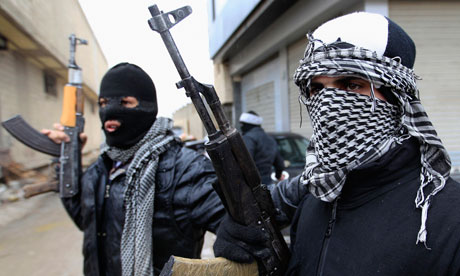By Zach Waksman
Impunity Watch Reporter, Africa
RABAT, Morocco – After sixteen-year-old Amina al-Filali killed herself on March 10, following a six-month forced marriage to the man who raped her, Morocco announced plans to revise its laws regarding the relationship between rape and marriage last Thursday. Protesters and feminists have long called for a controversial statute to be repealed, and the government has pledged to change its handling of rape.

Rape victims in Morocco are often subject to deep shame upon both themselves and their families, especially in rural areas such as where her hometown of Larache is located. Though the West African country’s laws provide for a prison sentence of 10 to 20 years for a person who rapes a minor, the rapist has a loophole that enables him to avoid incarceration. Under Article 475, an adult who has “corrupted a minor” may evade the charges by marrying the victim. A similar concept exists in the Christian Bible. This provision has often been used by families of rape victims to protect their honor. These “special circumstances” create an exemption to the requirement that both parties to a marriage be at least 18 years old.
“Another, more terrible failure is that the family agreed to the “amicable solution” offered by their friends. Rape is a crime in Morocco, but it is also a taboo. The woman who has been raped is often seen as having been shamed—her marriage prospects change radically, and her morals are called into question,” wrote Laila Lalami in a piece for The Daily Beast. “In other words, the victim is blamed and the perpetrator is forgotten. ‘If we married her off,’ Amina’s sister Hamida told a Spanish network, ‘it was to protect her, so that people would not speak ill of her.’ The Filali family apparently preferred to sacrifice their daughter’s physical and emotional well-being rather than live with the reminder that she had been raped.”
In Amina’s case, the family filed charges against the rapist last year. Her father, Lahsan al-Filali, said that the prosecutor advised him of the option to have her marry him. The judge ordered it. He told Morocco’s 2M Television that he had no choice but to allow the marriage.
“When the judge said they will marry, I did not agree, but I could not challenge the law. I wanted that man [the rapist] to go to prison,” he said. “At first I did not agree to this marriage, but when the court of family affairs called me and pressured me, I agreed.”
After the marriage, the husband’s treatment of Amina did not improve. She was beaten and deprived of food. When she told her family about the life she was living, she was reportedly disowned. By March, she could no longer take the punishment, so she swallowed rat poison to end her life. As Amina died, her enraged husband dragged her down the street by her hair. The Ministry of Justice’s preliminary investigation concluded that the relationship was consensual, meaning that it was not rape.
The stunning suicide prompted immediate calls for reform. A Facebook page called “We are all Amina Filali” has been created, and other protesters seek the incarceration of both the rapist and the judge who ordered the marriage.
“Amina was triply violated, by her rapist, by tradition and by Article 475 of the Moroccan law,” tweeted activist Abadila Maaelaynine.
Morocco is one of the more liberal Arab states with regard to women’s rights. In 2004, the country all but eliminated polygamy, abolished a duty of obedience to the husband, and permitted women to keep assets after a divorce. These reforms were hailed by the West as a step forward for women’s rights. But there is still more work to be done. Since 2006, the country has planned to adopt legislation banning all forms of violence against women, but it has yet to be seen. This incident might be the catalyst that drives the issue forward.
“It is unfortunately a recurring phenomenon,” Fouzia Assouli, the president of the Democratic League for Women’s Rights, told the Associated Press. “We have been asking for years for the cancellation of Article 475 of the penal code, which allows the rapist to escape justice.”
Moroccan communications minister Mustapha el-Khalfi confirmed the need for further reform.
“We can’t ignore what happened, one of the things we are looking for is to toughen the sentence for rape,” he told Al Jazeera. “We are also looking to creating a debate on the cultural and social aspects to create a comprehensive reform.”
Whatever the ultimate appearance of that reform may be, it is unlikely to constitute the end of the issue in Morocco. Last year, a government study found that about 25% of Moroccan women have been subjected to sexual assault at least once in their lives.
“Legal reforms are not enough so long as Moroccan society views the victim of a rape as something that needs to be solved,” wrote Lalami. “Rape is not puzzle. Rape is a crime. Amina Filali’s death is a stain on our collective conscience.”
For more information, please see:
Morocco Board — Morocco: Outrage Grows over Minor Rape & Suicide — 19 March 2012
The Week (UK) — Ordeal of Rape Victim Amina Filali Shocks Morocco — 19 March 2012
Morocco Board — Morocco: Antiquated Law Led to Suicide of Minor — 18 March 2012
Al Jazeera — Morocco Mulls Tougher Line on Rape-Marriages — 17 March 2012
BBC — Morocco Protest against Rape-Marriage Law — 17 March 2012
Montreal Gazette — Morocco to Revise Law after Rape Victim’s Suicide — 16 March 2012

